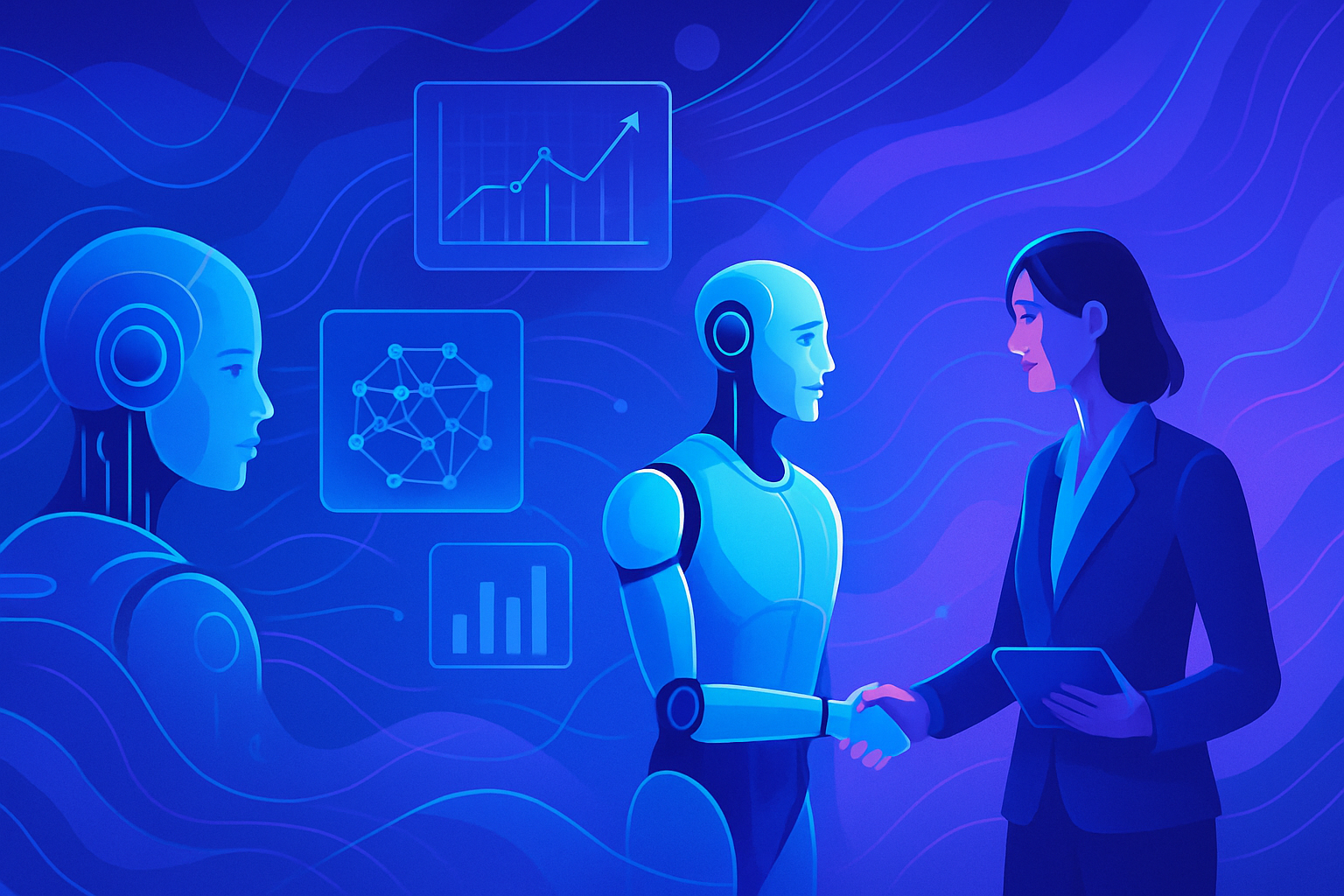Artificial intelligence is revolutionizing the marketing landscape at a staggering pace, redefining strategies and methods. Its applications, although largely integrated, still lack a solid structure in many companies. _Governance and training challenges_ have become inevitable, as mere adoption is no longer sufficient. Marketers must now confront the necessity of _optimizing their effectiveness_ while maintaining a value-driven approach. These are the essential issues that will shape the future of this discipline as AI asserts itself as an essential lever.
The adoption of artificial intelligence in marketing
A recent study conducted by Semji shows that 83% of marketers are integrating generative AI into their marketing strategy. Among this group, 66% are using it through targeted experiments. This phenomenon reflects a significant transition towards the normalization of practices regarding artificial intelligence. Only 3.3% of companies do not plan to adopt these technologies, highlighting a growing interest within the marketing field.
Despite this extensive integration, marketing teams feel under-skilled when faced with a constantly evolving technology. Most professionals began their shift towards artificial intelligence about a year ago, which Semji considers insufficient to establish a solid internal expertise. To address this gap, 40% of respondents have turned to training aimed at enhancing their skills.
A structured usage under construction
Governance around the use of AI is still in its infancy in many organizations. Nearly 60% of study participants report the absence of a formal framework, although 14% already share good practices and 8% benefit from strategic oversight involving senior management. The challenge now is to facilitate the sharing of internal reference frameworks and to embed AI within a governed and responsible process.
The perceived advantages of artificial intelligence
Marketers tout the tangible gains generated by artificial intelligence. In this regard, 75% of respondents use AI to increase their productivity by reducing the time spent on repetitive tasks. For 64% of them, AI enables faster content creation while maintaining optimal quality. AI tools significantly optimize data analysis by facilitating the understanding of key insights, which directly affects decision-making.
The reduction of production time, the acceleration of editorial workflows, and the alleviation of mental load illustrate how AI becomes a lever for immediate efficiency.
The obstacles to adopting artificial intelligence
Despite the potential benefits, several barriers hinder the spread of AI in marketing practices. The primary obstacle remains the measurement of return on investment, cited by 46% of respondents, often linked to the inefficiency of certain management tools. Integration issues within existing solutions, insufficient AI culture, and lack of time are among the frequently mentioned challenges. These obstacles reveal a need for structural support to make AI adoption effective.
Perspectives and recommendations for idealizing practices
To maximize the impact of integrating artificial intelligence, Semji offers several recommendations. It is essential to prioritize uses based on their real value, particularly by automating repetitive tasks to focus efforts on the overall strategy. Cataloging content that can be standardized, such as recurring formats or SEO articles, represents another avenue for yield.
Regular assessments of impact, focusing on time saved, quality improvement, and engagement, are also indispensable. Finally, it is crucial to distinguish between adoption and maturity, ensuring that artificial intelligence delivers sustainable benefits. The rise of a structured usage culture of AI is imperative for the marketing sector to overcome existing obstacles.
To delve deeper into this topic and understand how to better integrate AI as a performance lever, resources such as Semji’s white paper are invaluable: Zendesk, Google AI, Job negotiations, DeepSeek, and AI in engineering.
Frequently asked questions about artificial intelligence in marketing
How is artificial intelligence transforming the marketing sector?
Artificial intelligence improves marketing by automating repetitive tasks, optimizing content creation, and providing more precise insights for decision-making, leading to increased efficiency and productivity.
What are the main applications of AI in marketing today?
The main applications of AI include customer data analysis, user experience personalization, marketing campaign automation, and content optimization for search engines.
What challenges are faced when adopting AI in marketing?
Challenges include a lack of internal skills, the absence of clear governance, difficulty in measuring return on investment, and integration challenges with existing systems.
How can companies measure the impact of AI on their marketing strategies?
Companies can measure the impact of AI by monitoring indicators such as time saved, improved content quality, increased customer engagement, and the return on investment from automated campaigns.
What types of training are necessary to integrate AI into marketing teams?
Training should focus on understanding AI tools, data analysis, content strategy, and best practices for AI integration, to develop true internal expertise.
Can AI completely replace human marketers?
No, AI is not designed to replace human marketers, but rather to assist them by taking on repetitive tasks and providing insights that can enhance decision-making and creativity.
What is the future of AI in marketing?
The future of AI in marketing looks promising with increased adoption, constantly evolving technologies, and deeper integration into overall strategies, allowing for even more personalized and effective campaigns.
How can companies begin to use AI responsibly?
Companies should establish an ethical and governance framework, prioritize uses based on real value, ensure transparency in utilized algorithms, and involve all stakeholders in the adoption process.
What emerging trends are seen in the use of AI in marketing?
Emerging trends include increased use of machine learning for personalization, intelligent automation of campaigns, integration of AI into customer experience, and a focus on AI ethics.






